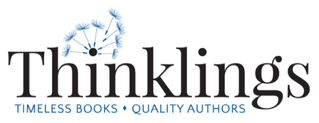|
This post first appeared in Deborah's blog.
I ran a setting workshop. Here are my notes, based on experience and research, on how to write a great setting for your book:
Setting Workshop
Setting impacts every scene of every book. It can be used to enhance writing or to detract from it. Below is a brief set of notes describing the three primary elements of writing setting: 1) Relevance: When should you describe setting? 2) Revealing Setting: Through what method should you convey setting? 3) Descriptive Properties: What should be in setting description? RELEVANCE: Descriptions should bring immediacy to the world, not stall you out. Use them for multiple purposes. (“Skid Row” from Little Shop of Horrors establishes setting, conflict, characters, theme, etc.) Why does the character care? • Does it affect him/her? Does it inform perception, identity, or physicality? • Does the character affect the setting? Why should we care? • Is that prop important? What message/feeling are you trying to get across? What do we need to understand this scene? • Does the setting help the reader better understand the characters’ motivations and backgrounds? • Does it help the reader better connect to the story? • How does the setting prime reader assumptions? • Is it interesting? How does it add to the world building? • Is it consistent? (Fact checking!) • (Setting can be physical, social, emotional, etc.) Why is it important to the plot? • Does it make sense that your characters are there? • Is there symbolic or thematic importance? • Does it help move the plot forward? • Does it add to or subtract from conflict? REVEALING SETTING: Setting can be revealed through motion, character perception, or exposition. Setting can be revealed gradually or all at once. Generally but not universally, setting is revealed either wide shot to close up or abstract to concrete. More setting description will slow the book’s pace, so how quickly or slowly do you want to dive into the story? (For example: fast action sequences generally have less setting description; slow, tense build-ups generally have more.) Motion • Use action to build setting instead of just description. • Poe’s “The Fall of the House of Usher”: “During the whole of a dull, dark, and soundless day in the autumn of the year, when the clouds hung oppressively low in the heavens, I had been passing alone, on horseback, through a singularly dreary tract of country; and at length found myself, as the shades of the evening drew on, within view of the melancholy House of Usher.” Character Perception • Level of experience: Would she know what type of desk the wood was? Is she in the right state of mind to notice? How would different characters perceive the same setting? • Mood: Is the ruin enchanting because they’re in love or creepy because they’re scared? Reader perception and reaction doesn’t have to be the same as character perception--narrative distance. Does the character think it’s romantic while the reader actually knows it’s dangerous/creepy? • Even a third-person narrator has a character and personality and should be consistent. How do you move the camera? DESCRIPTIVE PROPERTIES: Regardless of the method used to describe the setting in any particular scene, here are some helpful elements to keep in mind. Details: What defines the room? What’s the first thing you see? What’s unusual about it? I don’t need to know that the kitchen has a sink. But if it doesn’t have a sink—that’s weird. • The more precise the detail, the more interesting (“my dog is lying against me” vs. “my dog is curled up against my thigh”). • Describing in terms of something else—leaves are tresses now. Don't need to spell it out. • Sensory detail: Sight, hearing, taste, smell, touch, temperature, kinesthetic, pain, balance, vibration, direction. • Locale, time of year, time of day (check accurate sun/moon positions!), elapsed time, weather, climate, geography. • Effects of time’s passage (What was the Shire like when the Hobbits finally returned? The movie left out the Scouring of the Shire. Why did Tolkien think it was so important?) • Lack of detail: when is it more tactful not to describe? What should we not describe? (Sometimes, a brief, dry, clinical description can be more impactful than a page of gruesome prose. Understatement of that type often feels more real, especially in contrast.) Background: • Consistency (internally, with world, with character perception, etc.) • Do your research: know much more than you put down. • If it’s boring, cut it. • Are you excited about your setting? Do you, the writer, want to spend time there? Does it frighten you, intrigue you? Or do you not really care? https://www.nownovel.com/blog/talking-setting-place/ http://www.writing-world.com/fiction/settings.shtml TL;DR: Should you include setting description? How should you reveal it? What should you include or not include?
As an Amazon associate, we earn from qualifying purchases.
0 Comments
Your comment will be posted after it is approved.
Leave a Reply. |
Archives
July 2024
Categories
All
|
As an Amazon Associate, we earn from qualifying purchases.



 RSS Feed
RSS Feed
